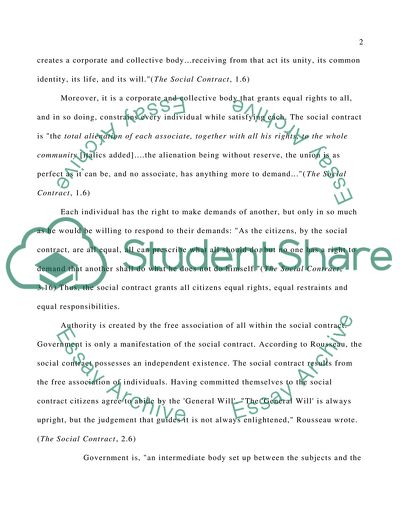Cite this document
(Theory of the Social Contract by Hobbes, Rousseau, Smith and Kant Coursework, n.d.)
Theory of the Social Contract by Hobbes, Rousseau, Smith and Kant Coursework. Retrieved from https://studentshare.org/philosophy/1740882-how-the-social-contract-provides-an-adequate-justification-of-the-government-focusing-on-hobbes-and-rousseau-as-major-philosophers-and-smith-and-kant-as-minor-philosophers
Theory of the Social Contract by Hobbes, Rousseau, Smith and Kant Coursework. Retrieved from https://studentshare.org/philosophy/1740882-how-the-social-contract-provides-an-adequate-justification-of-the-government-focusing-on-hobbes-and-rousseau-as-major-philosophers-and-smith-and-kant-as-minor-philosophers
(Theory of the Social Contract by Hobbes, Rousseau, Smith and Kant Coursework)
Theory of the Social Contract by Hobbes, Rousseau, Smith and Kant Coursework. https://studentshare.org/philosophy/1740882-how-the-social-contract-provides-an-adequate-justification-of-the-government-focusing-on-hobbes-and-rousseau-as-major-philosophers-and-smith-and-kant-as-minor-philosophers.
Theory of the Social Contract by Hobbes, Rousseau, Smith and Kant Coursework. https://studentshare.org/philosophy/1740882-how-the-social-contract-provides-an-adequate-justification-of-the-government-focusing-on-hobbes-and-rousseau-as-major-philosophers-and-smith-and-kant-as-minor-philosophers.
“Theory of the Social Contract by Hobbes, Rousseau, Smith and Kant Coursework”, n.d. https://studentshare.org/philosophy/1740882-how-the-social-contract-provides-an-adequate-justification-of-the-government-focusing-on-hobbes-and-rousseau-as-major-philosophers-and-smith-and-kant-as-minor-philosophers.


